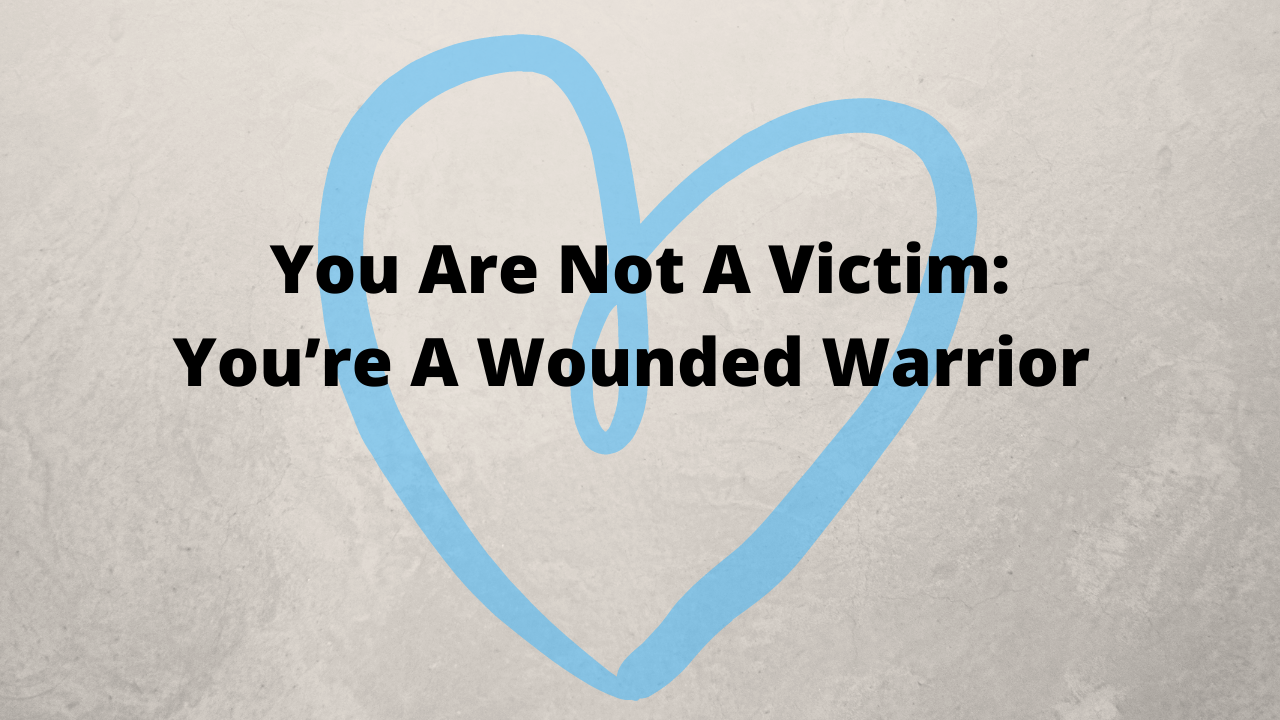Reclaim Your Power After Experiencing Abuse In A Relationship.
People get stuck in victimhood and pain after experiencing domestic abuse and trauma.
Many abuse survivors don’t share their stories. Either they tried, and no one believed them, or the fear of saying the story out loud is just too overwhelming.
Unfortunately, most abuse survivors believe they are worthless, unlovable, and fear being close to other people. These are all normal responses to an abusive situation.
You can’t change what happened to you, and it absolutely was not your fault. What you can control is what you do next.
How do you take your power back?
Stop thinking in terms of being the victim move out of victimhood. Instead, think of yourself as the “wounded warrior” and you as the “golden phoenix” about to rise again.
This is how you can start to take your power back.
1. Tell your story.
A major step in healing is letting it out. You can talk to a trusted family member or a friend, although you may find that repeating your trauma story is very difficult. Seek out an experienced trauma therapist, if money is an issue, at the very least you can call Samaritans.
(Samaritans is a registered charity aimed at providing emotional support to anyone in emotional distress, struggling to cope, or at risk of suicide throughout Great Britain and Ireland)
You can also write your story, journal your thoughts and emotions, keep a “Dear Diary” another good way to release your emotions.
2. Identify the lies on repeat in your head.
You keep going over the situation, you can’t think about anything else. You feel that it is all your fault, I made mistakes, I brought it all on myself. No one will ever love me. in this situation, you may need the help of a PTSD counsellor. In the UK talking therapies are available through the NHS, your GP can refer you, or you can refer yourself.
3. Taking back control
‘I’m not a victim anymore. I won’t be a victim anymore.’
It is important to understand that feeling like a victim and acting from that perspective will always leave you in a weak position.
The process of empowerment was recognised within the early refuge movement as women who had gone through the process of recovery from abuses, shared those experiences with people new to the refuge.
This idea around the “process of empowerment” can be replicated online. Private groups within Social Media for example Facebook can be used successfully to educate, empower and help “wounded warriors” rise quickly from victimhood to “golden phoenix”.
Even baby steps in the right direction will get you out of the grief, trauma, anxiety and feelings of worthlessness quicker than taking no action at all.
Negative emotions keep us in a state of being a victim.
Often people who have escaped an abusive situation or have been abruptly discarded by their partner experience an array of emotions and feelings from the abuse inflicted upon them by their abuser.
Here are just a few of the emotions that can be experienced;
- Still love their abuser
- Feel depressed
- Feel helpless
- Withdraw emotionally
- Feel isolated
- Be unaware of what services are available to help them
- Embarrassed of their situation
- Deny or minimize the abuse or make excuses for the abuser
- Feel shame
- Have anxiety
- Have suicidal thoughts
- Abuse alcohol or drugs
- Feel financially dependent on their abuser
- Feel like they have nowhere to go or no ability to get away
- Have no support from friends of family
- Fear they will not be able to support themselves after they escape the abuser
- Distrustful of police, courts, or other systems if the abuse is revealed
By following the three steps above you can begin to recover your worth, recover your self-esteem and confidence. Everyone will recover at different speeds, some maybe months, others maybe two years. When you understand the situation and educate yourself on the things you can do, you will move out of being stuck in victim mode and you can get to your own position of power much sooner rather than later.
Support my first book launch
Post-Separation Abuse. Betrayal & Abandonment and What Type Of Man?
Help with a donation or JOIN THE WAITLIST




I just like the helpful information you provide in your articles
Very well presented. Every quote was awesome and thanks for sharing the content. Keep sharing and keep motivating others.
I’m often to blogging and i really appreciate your content. The article has actually peaks my interest. I’m going to bookmark your web site and maintain checking for brand spanking new information.